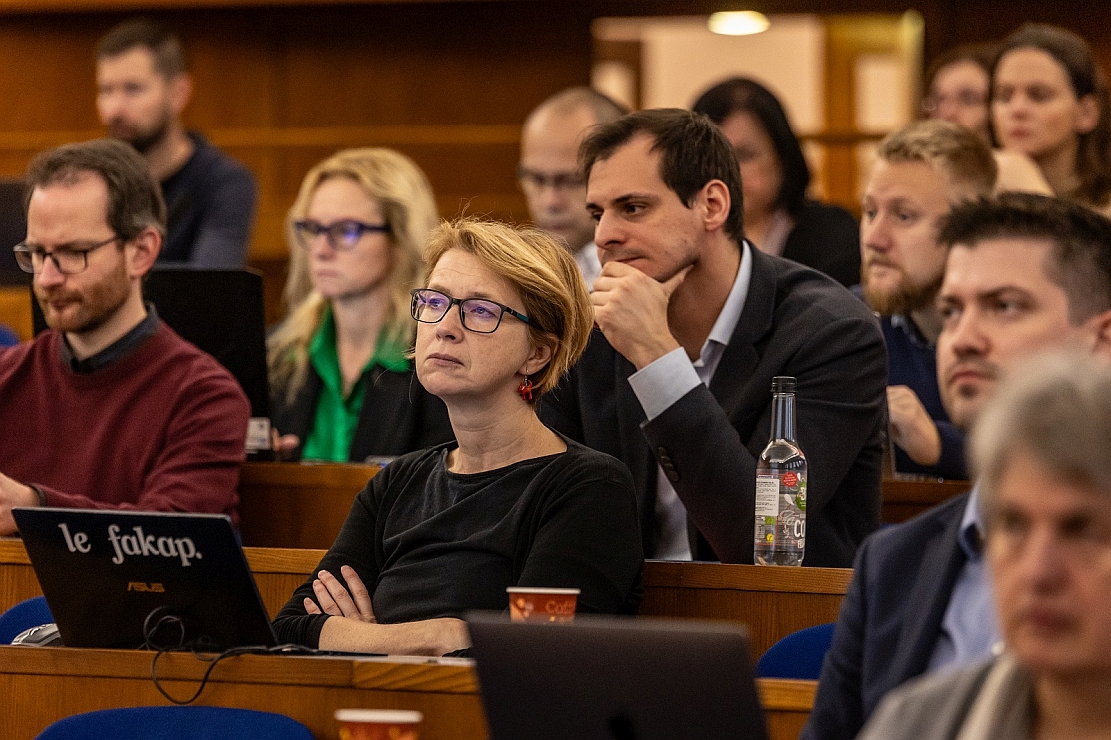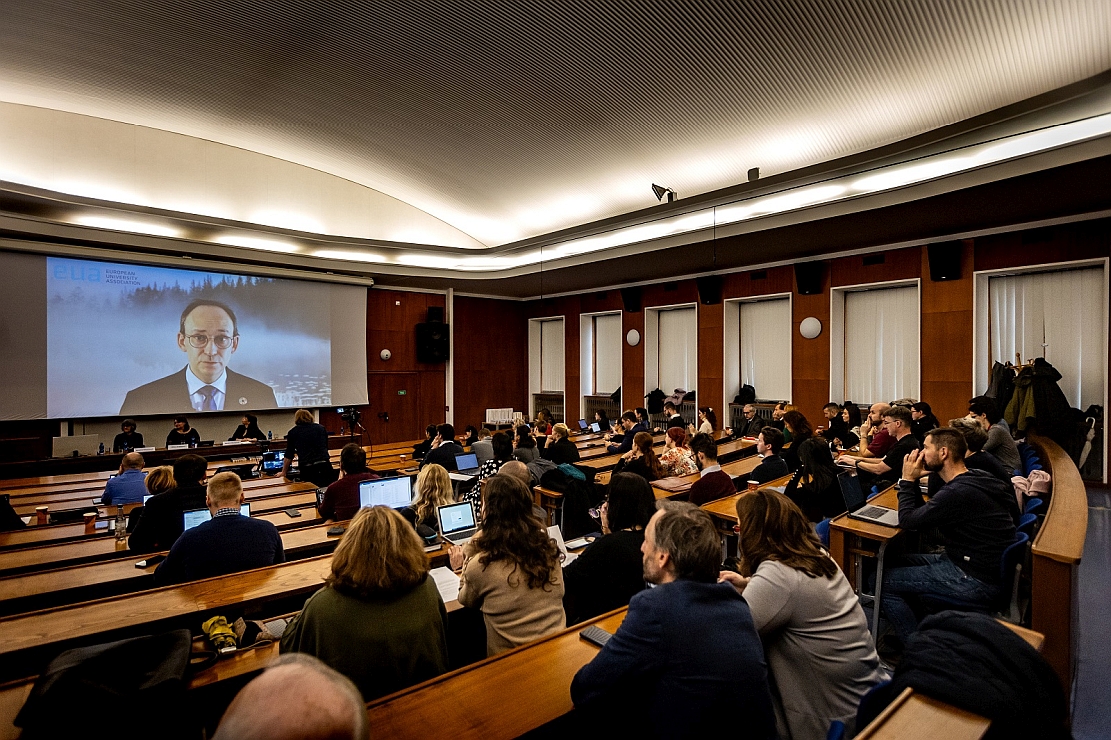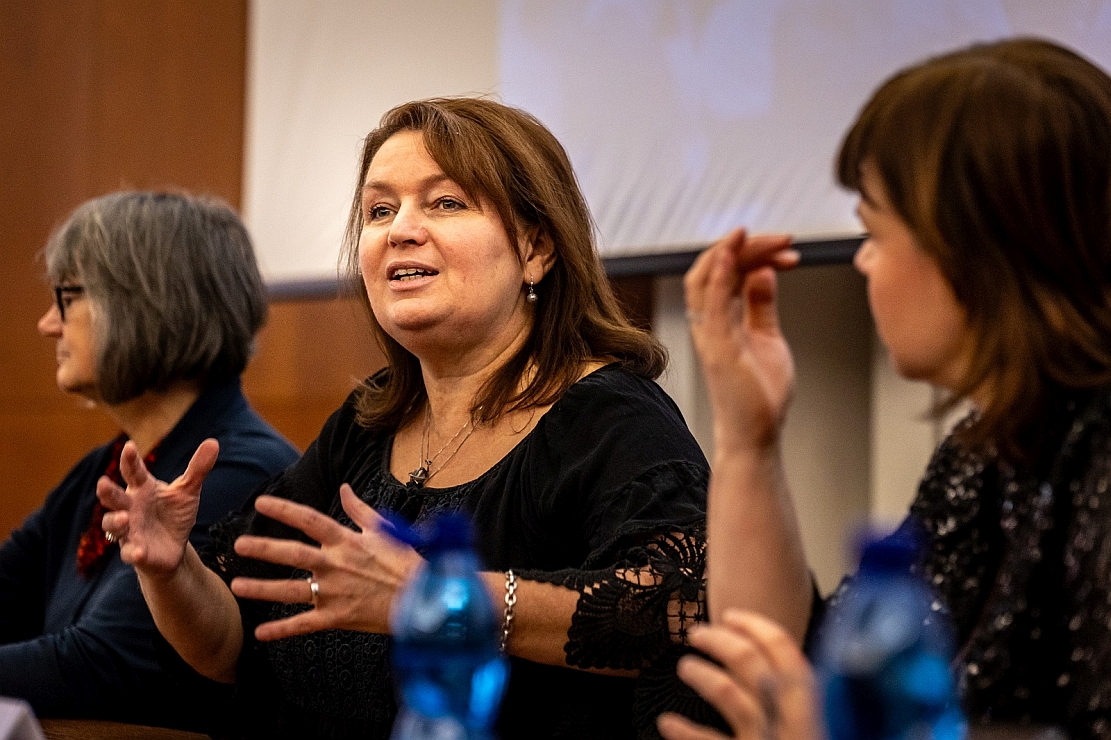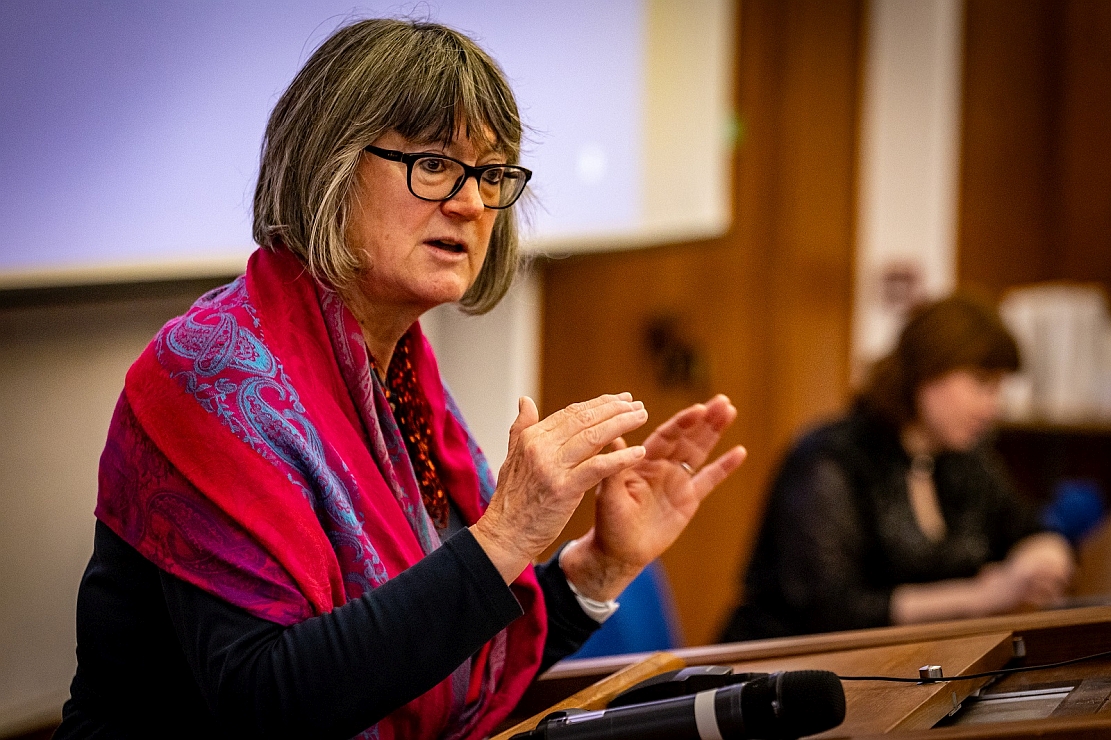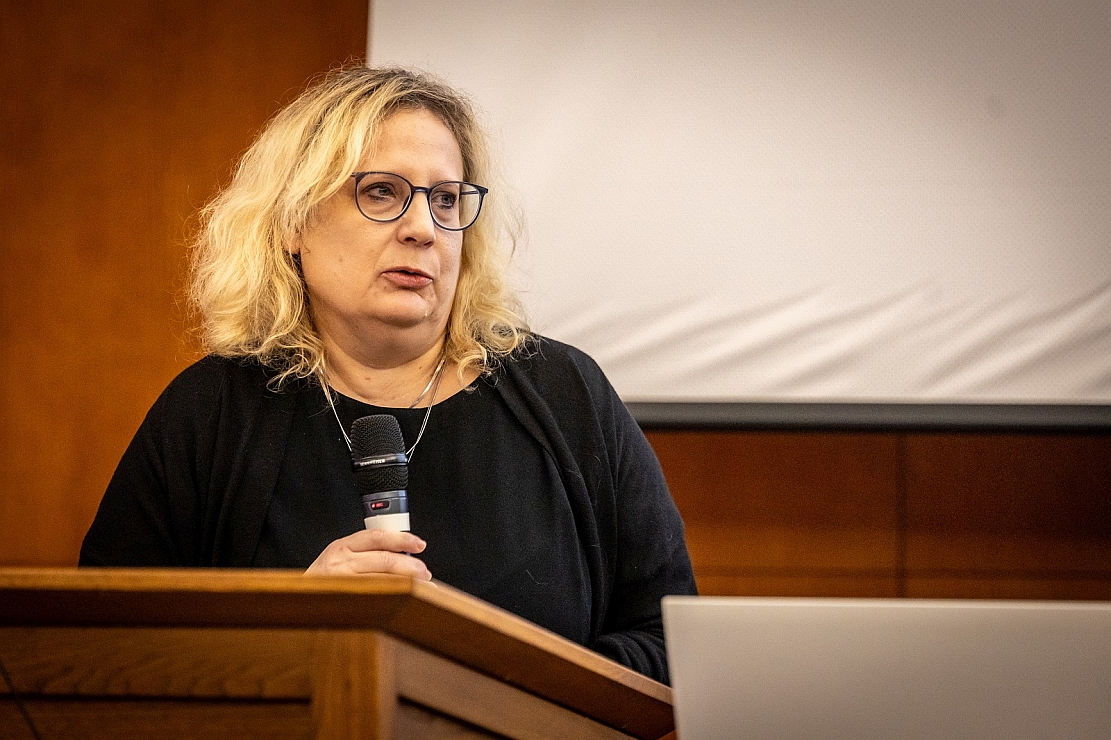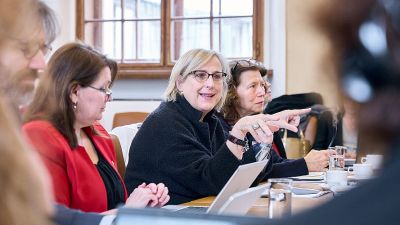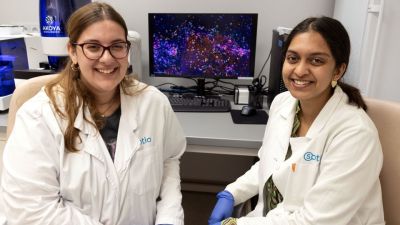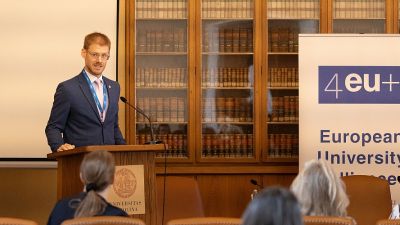At the conference Microcertificates in the Czech Higher Education Environment, organised by Charles University, experts and education specialists from Czechia and abroad discussed what this year has brought in the field of microcertificates and how their concept is being implemented in the higher education environment. The aim was to map progress achieved at individual institutions and to present examples of good practices from Czech and foreign universities, especially from the partner universities of the 4EU+ Alliance.
Since microcertificates are often shorter one semester courses with a direct link to the application sphere, which guarantee their graduates better employment and competitiveness on the labour market, the conference discussed their contribution not only in the context of education, but also employment in Czechia.
“In September 2024, we successfully completed a more than two-year project under the National Recovery Plan. We are therefore at the end of it, and at the same time at the beginning of the use of the concept of microcertificates in Czechia. Our task now is to bring prepared courses leading to the microcertificate to life and to spread awareness of this type of programme. It will also be crucial to establish effective cooperation with employers so that the courses leading to the improvement of qualifications and retraining of participants can respond to the demand of the labour market," Markéta Martínková, Vice-Rector for Education at Charles University, who accompanied the conference and moderated the discussion, said.
“We want microcertificates to be at home at Charles University, because they are a great tool to respond flexibly to changes that are not only awaiting us, but are already happening,” the rector of Charles University, Milena Králíčková, said upon opening the conference - adding that it is up to the management of individual universities, or departments, to take the introduction of microcertificates into higher education into their own hands and thus support the flexibility of students, or graduates, on the labour market. “However, microcertificates are only one of the tools to help people become more employable and promote their competences. The other equally important way is to enable learners to transfer more easily between fields of study, and microcertificates are also an excellent tool for this, because they help people to improve their skills and be more attractive to potential employers,” the rector pointed out.
On the basis of pilot courses introduced during 2024, Charles University offers the possibility of obtaining relevant microcertificates at its faculties and units in 49 different programmes. Twelve faculties, the Institute of Language and Preparatory Studies and the CU Centre for Theoretical Studies are already involved in the implementation of the programmes.
Kateřina Štěpánková, Senior Director for Management of the Employment Section of the Ministry of Labour and Social Affairs of the Czech Republic, moved the debate from the academic environment more to the labour market and presented a number of dominant trends that have been observed. “On the one hand, it is very positive that we have a long-term low unemployment rate in the Czech Republic, which is below 4 percent. On the other hand, this fact brings us a number of challenges arising from the fact that there are not enough qualified workers on the market,” Kateřina Štěpánková from the Czech Ministry of Labour and Social Affairs said. The Ministry of Labour has decided to respond to this reality by increasing the supply of and incentives for retraining courses.
“Currently, the labour market is most affected by digitalisation, demographic changes and the impact of the war in Ukraine. In the future, the biggest driving force will be artificial intelligence and the end of the economic recession caused by the Covid pandemic,” Kateřina Štěpánková said, adding that more than three hundred thousand jobs will be lost due to AI in particular, but almost one million new ones will be created. “We expect that 40 percent of jobs will be strongly influenced by AI and around two million workers will need training in information technology,” the director of the employment section of the Ministry of Labour and Social Affairs explained.
“We all know that lifelong learning is a necessity. Now we should work on making lifelong learning correspond to the requirements of the labour market,” Karolína Gondková appealed. “Microcertificates are a great and quite elegant tool to motivate people to grow professionally. During the past year, we managed to launch 82 new courses and award almost three hundred certificates,” she explained.
The first panel was concluded by the Director of the House of Foreign Cooperation, Michal Uhl, who presented the Studuj na VŠ (Study in Czechia) portal - a state-supported online database of all available study programmes in the Czech Republic, including microcertificates. "Of course, this is by no means the final form of the portal, we are continuously working on its development and are planning more and more updates and improvements to make it as user-friendly as possible, while at the same time providing comprehensive information. We want to do the best public service," summarised Michal Uhl, Director of the Czech National Agency for International Education and Research (DZS).
The subsequent programme continued until late afternoon, mapping examples of good practice from abroad. Discussions and presentations were given by representatives of European universities operating within the 4EU+ Alliance and others - for example Sabine Bottin-Rousseau from Sorbonne University or Mags Arnold, who is responsible for microcertificates at University College Cork.
Forum spoke briefly with Sabine Bottin-Rousseau after her presentation which had focused specifically on just how proactive the 4EU+ Alliance (which counts eight prestigious universities including CU) had been. She recapped the importance of microcertificates as essential tools moving forward:
“I agree that microcertificates are changing the education landscape and in fact it is because of what they are: microcredentials are in fact shorter modules focusing on skills that are needed to tackle some of the problems and crises that society is facing. Through them, we aim to answer those challenges and the labour market demand. New skills are needed and all our students as we understand it will need to reskill very soon. If universities don’t want these markets to be left solely up to the private sector, we have to take microcertificates [by the horns].
It would be a shame it we didn’t as this is what we are the best equipped to do, this is what we do well. And while students can benefit from learning new skills, there is also a possibility of offering the same modules within lifelong learning. It’s important to understand that as proposed, they do not replace our tradition education framework of bachelor’s, master’s and PhDs but complement it or act as a supplement. You still need fundamental base deep knowledge from individual degrees like a bachelor’s and microcertificates do not replace those. These microcertificates can be introduced early as bits or pieces that add to one’s overall training.”
In your presentation, you outlined the 4EU+ Alliance was in some ways the perfect vehicle to introduce something like microcertificates: even so, are there hurdles when it comes to agreement and streamlining or harmonising among the different alliance members.
“It can of course be difficult but of course we can harmonise. It’s about bringing everyone [up to speed] and moving forward together. Those who are moving forward can also help the others catch up in certain areas. It also a certain leverage: if someone is ahead, it is an incentive for others to pull together so that they do not remain behind.”
When it comes to implementing microcertificates are we still at the beginning or at 'the end of the beginning'?
“The end of the beginning, I think. We are looking for the next generation of funding that should bring more long-term perspectives. Recently, we completed our long-term strategy 2025-2035 so I think we are entering a new phase. We have already achieved a lot with some programmes such as an entrepreneurship project management module [taken up now by six universities] but now it is time to enter the next phase.”


